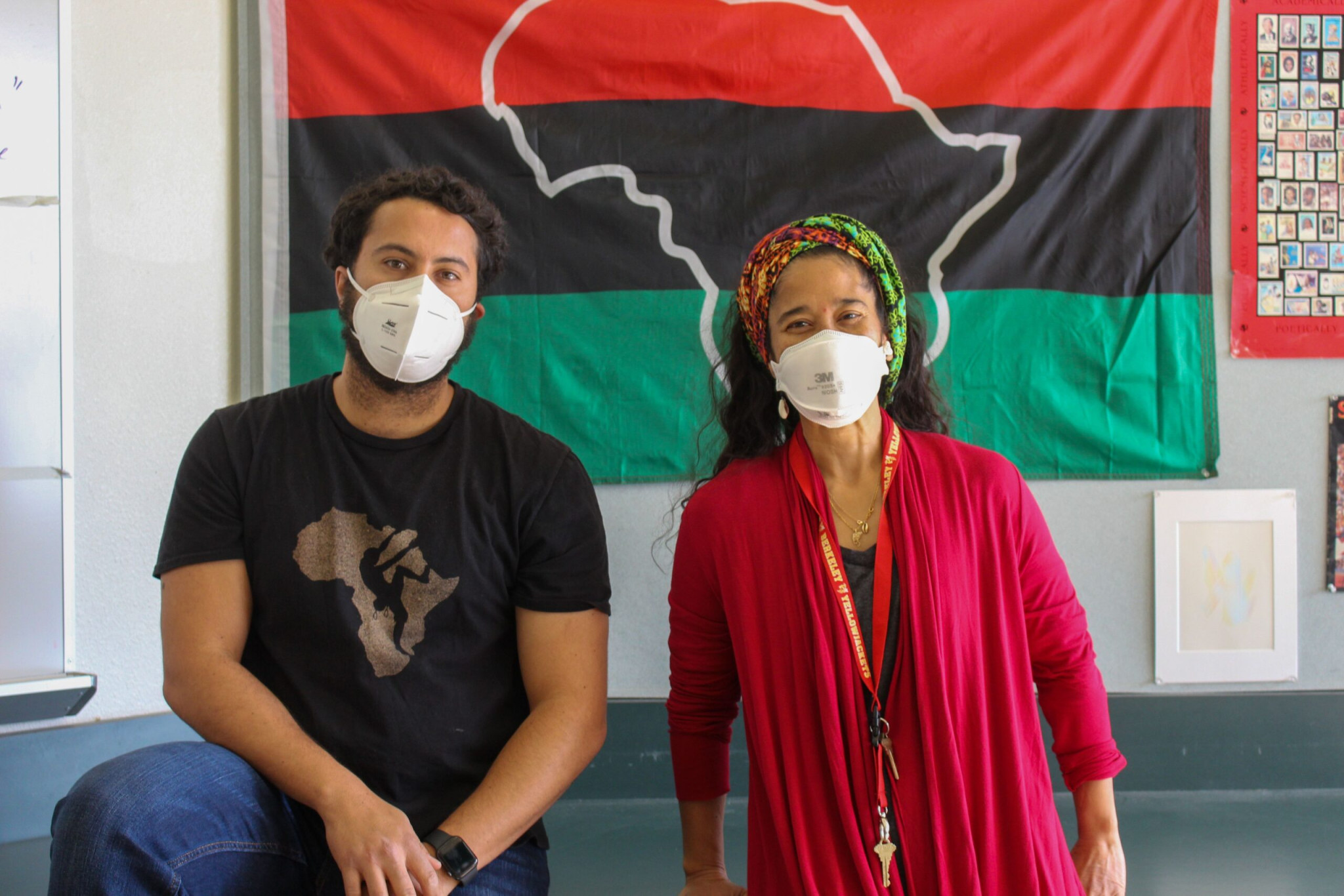Dawn Williams and Spencer Pritchard, both teachers in the African American (AFAM) Studies Department at Berkeley High School (BHS), had a vision for the department. For Black students, they’d offer a way to relate to a course. For non-Black students, they’d provide a chance to learn about the past and present of Black people in the US.
“I didn’t have a Black professor until I came to Berkeley for graduate school,” Dawn Williams said. “I experienced firsthand what it was like to have a professor who could connect with your roots and your culture in the classroom.”
The AFAM Studies Department at BHS was born in 1968, partly as the result of the efforts of Bobby Seale and Huey P. Newton, both former BHS students who formed the Black Panther Party two years earlier. The Black Power movement at this time inspired many to protest for Black and Ethnic Studies.
At the program’s founding, Clarence Hampton was named curriculum associate. He emphasized the importance of hiring Black teachers, explaining that it was crucial to include staff with whom students could relate. Since then, the department has thrived.
In recent years, however, the department struggled due to the pandemic. Previously, the department relied heavily on students discovering the program through performances when it came to things like dance sign-ups. That became nearly impossible with COVID-19. The campus shut down, thus making it difficult for the department to gain student attention.
“Our enrollment decreased due to COVID-19,” Dawn Williams said. “Last year, we were on Zoom, and that meant we did not have our annual show. Our performances are the equivalent of a commercial for our program. Without it, students don’t always know that we exist.”
Dawn Williams and Pritchard mentioned that due to COVID-19, the Hip Hop Studies class and a section of African Diaspora Dance was lost. “We hope to expand our course offerings in the future to reach more students, especially those in ninth and tenth grade,” Pritchard said.
Having an extensive AFAM Studies Department benefits the community in more than one way. It opens up the possibility of exploring new cultures, away from the typical eurocentric lens. While many schools may only have traditional academic courses, like African American Economics, there is the ability to make the program more creative. BHS, for instance, offers African Diaspora Dance classes in addition to other more academic courses.
“For dance specifically, it is about fully understanding the dance, the music, and its origin,” Dawn Williams said. “Being able to center Black/African culture and history unapologetically is a huge benefit.”
Diamond Williams is a senior in the Academy of Medicine and Public Service (AMPS) who has been taking African Diaspora Dance since freshman year. “It’s us learning the history behind it, and the stories that everyone tells through generations with these dances,” she said. “There are so many and they’re coming from so many different places.”
Dawn Williams explained that her course has not just produced phenomenal performances on stage but it has also drawn out self-confidence many students don’t know they have. It is a source of growth and friendship through the art of expression.
“The biggest joy is seeing students transformed by the information,” Pritchard said, mentioning his African American History, Black Psychology, and Black Economics courses. “Often, students visit me after they graduate and share how these courses have helped them be more confident navigating their life after high school.”
While the global pandemic may have made enrollment difficult, it’s not hard to see the overall impact that the AFAM Studies Department has had on the BHS community.
“Our BHS AFAM Studies Department is proof of activism creating change,” Dawn Williams said. “[It was] born in 1968 from student and parent demands, and that is an important legacy to carry on.”





